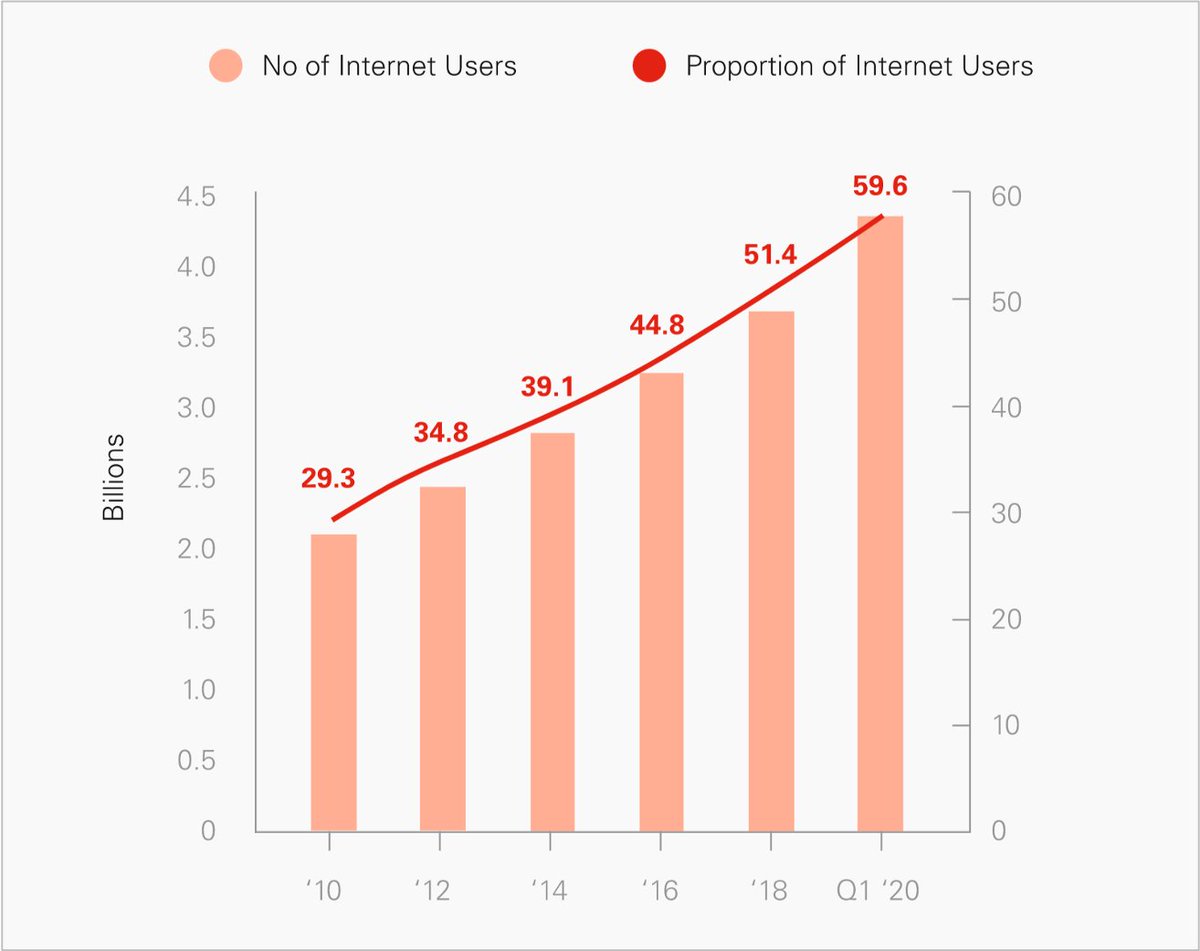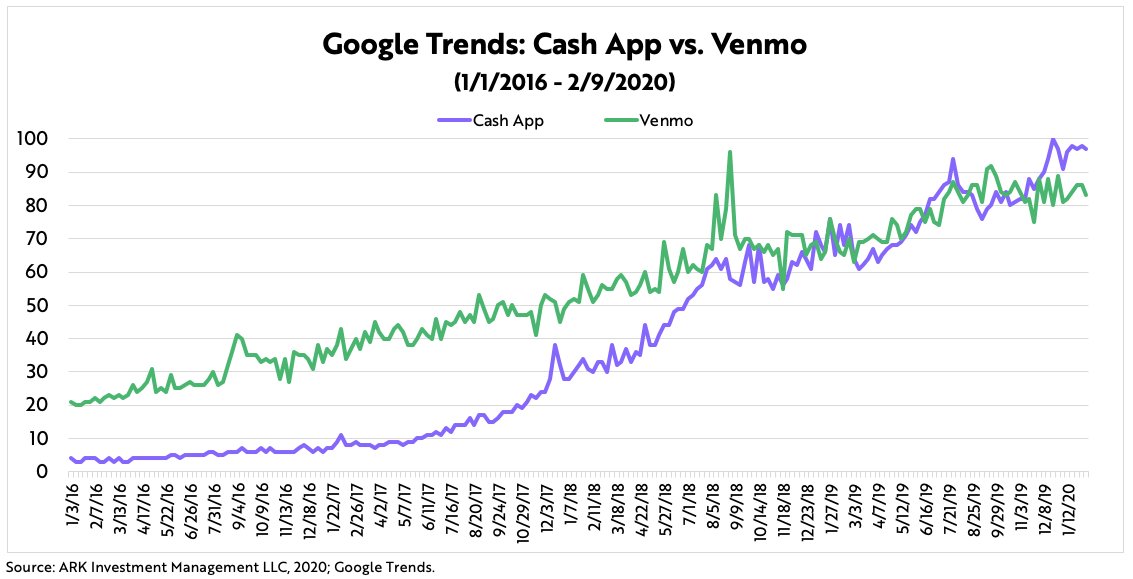
If you're interested in consumer tech:
Every Wednesday, I send out a piece of writing. Topics include: creators, internet culture, digital economies, Web3, & social media
You can subscribe here. Below are 10 of my favorite recent Digital Native pieces 👇
digitalnative.substack.com
Every Wednesday, I send out a piece of writing. Topics include: creators, internet culture, digital economies, Web3, & social media
You can subscribe here. Below are 10 of my favorite recent Digital Native pieces 👇
digitalnative.substack.com
📹 What People Misunderstand About The Creator Economy 📹
5 reasons it's important:
• It's about self-expression
• It's horizontal, not vertical
• It enables diverse voices
• It lets workers reclaim agency
• It breaks down outdated power structures
digitalnative.substack.com/p/what-people-…
5 reasons it's important:
• It's about self-expression
• It's horizontal, not vertical
• It enables diverse voices
• It lets workers reclaim agency
• It breaks down outdated power structures
digitalnative.substack.com/p/what-people-…
🏛️ The Memeification of American Capitalism 🏛️
There are common threads between r/WallStreetBets and NFT mania. Both are emblematic of a growing backlash to institutions.
From GameStop to Beeple, internet culture is seeping into corporate America.
digitalnative.substack.com/p/the-memeific…
There are common threads between r/WallStreetBets and NFT mania. Both are emblematic of a growing backlash to institutions.
From GameStop to Beeple, internet culture is seeping into corporate America.
digitalnative.substack.com/p/the-memeific…
💙 Digital Kinship & the Loneliness Epidemic 💙
The internet is both a cause of and salve for the loneliness epidemic.
Culture is in the midst of a pendulum swing back to community over self. And people seek community online.
digitalnative.substack.com/p/digital-kins…
The internet is both a cause of and salve for the loneliness epidemic.
Culture is in the midst of a pendulum swing back to community over self. And people seek community online.
digitalnative.substack.com/p/digital-kins…
💰 How to Monetize Culture 💰
Business model shifts are often more transformative than technology shifts. This piece explores future business models of the internet, including:
• Subscriptions
• Microtransactions
• Virtual currencies
Commerce > ads
digitalnative.substack.com/p/how-to-monet…
Business model shifts are often more transformative than technology shifts. This piece explores future business models of the internet, including:
• Subscriptions
• Microtransactions
• Virtual currencies
Commerce > ads
digitalnative.substack.com/p/how-to-monet…
🪞 The Two-Way Mirror of Art and Technology 🪞
• Radio gave us FDR
• TV gave us JFK and Oprah
• Instagram gave us Kim K
• TikTok gave us Charli D'Amelio
New technologies determine culture and the people who define culture.
digitalnative.substack.com/p/the-two-way-…
• Radio gave us FDR
• TV gave us JFK and Oprah
• Instagram gave us Kim K
• TikTok gave us Charli D'Amelio
New technologies determine culture and the people who define culture.
digitalnative.substack.com/p/the-two-way-…
💄 The Rejection of Internet Perfection 💄
There's been a rapid shift from aspiration to authenticity online. Kylie Jenner quickly gave way to Charli D'Amelio. Gen Zs are behind this shift.
digitalnative.substack.com/p/the-rejectio…
There's been a rapid shift from aspiration to authenticity online. Kylie Jenner quickly gave way to Charli D'Amelio. Gen Zs are behind this shift.
digitalnative.substack.com/p/the-rejectio…
🧱 Memes and the Atomic Units of Culture 🧱
Simply put, a meme is a unit of culture transfer. Memes are our most underrated form of communication.
We're shifting from consumption to creation—more people will actively participate in meme culture.
digitalnative.substack.com/p/memes-and-th…
Simply put, a meme is a unit of culture transfer. Memes are our most underrated form of communication.
We're shifting from consumption to creation—more people will actively participate in meme culture.
digitalnative.substack.com/p/memes-and-th…
🌍 We’re All Social Distancing on the Internet Too 🌍
Just as we're all isolated in the real world, we're in our proverbial quarantine bubbles online. The internet is niche and mass media has given way to deeply-engaged but more insular communities.
digitalnative.substack.com/p/were-all-soc…
Just as we're all isolated in the real world, we're in our proverbial quarantine bubbles online. The internet is niche and mass media has given way to deeply-engaged but more insular communities.
digitalnative.substack.com/p/were-all-soc…
💃 Gen Z Behaviors 💃
Gen Zs are:
• Community-centric & radically inclusive
• Playful, joyful, & serendipitous
• Deeply creative
• Scrappy & entrepreneurial
• Authentically individualistic
digitalnative.substack.com/p/gen-z-behavi…
Gen Zs are:
• Community-centric & radically inclusive
• Playful, joyful, & serendipitous
• Deeply creative
• Scrappy & entrepreneurial
• Authentically individualistic
digitalnative.substack.com/p/gen-z-behavi…
🎨 The Digital Renaissance 🎨
NFTs and social tokens are forming the foundation of a new architecture for creative industries. They finally fulfill the internet's promise of removing gatekeepers.
digitalnative.substack.com/p/the-digital-…
NFTs and social tokens are forming the foundation of a new architecture for creative industries. They finally fulfill the internet's promise of removing gatekeepers.
digitalnative.substack.com/p/the-digital-…
• • •
Missing some Tweet in this thread? You can try to
force a refresh









